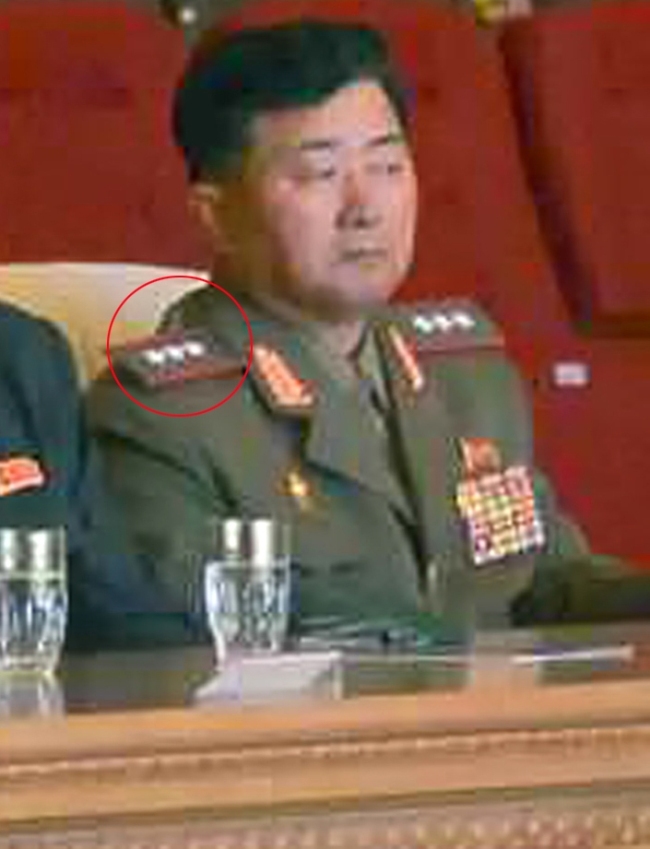 |
Jang Jong-nam (Yonhap News) |
North Korea has replaced a hawkish defense minister with a younger, little-known army commander, indicating the shakeup of the upper military echelons was still ongoing to strengthen its leader Kim Jong-un’s grip over the armed forces.
The official Korean Central News Agency on Monday introduced Jang Jong-nam, in his 50s, as the minister of the People’s Armed Forces in a report on a military musical event attended by Kim and his wife Ri Sol-ju.
It was the first time the North’s state media had mentioned Jang as the head of the organization under the National Defense Commission, a powerful state body that executes key military and national projects.
Jang replaced Kim Kyok-sik who came to the post just eight months ago. Kim, 75, is known to be a hawkish commander that led a set of provocations against the South, such as the sinking of the corvette Cheonan and shelling of Yeonpyoengdo Island in 2010.
Yang Moo-jin, professor at the University of North Korean Studies, said the appointment of Jang as defense minister appeared to be part of a generational shift in the top brass.
“The frequent military reshuffles could be designed to elicit the loyalty of military leaders to the dynastic ruler,” Yang added.
The KCNA report came unexpectedly as Kim was seen holding the ministerial post until earlier this month. The KCNA mentioned Kim as the minister of the People’s Armed Forces on May 4 when he attended a concert marking the country’s Labor Day.
Jang was promoted to a one-star general in April 2002 and a two-star general in November 2011. Until recently, he headed the army’s first corps in charge of defending the frontline area in the North’s Gangwon Province.
Last December, Jang was seen delivering a speech to pay allegiance to the North Korean leader during a military convention at a square in front of the Kumsusan Memorial Palace of the Sun, where the embalmed bodies of North Korea’s founding leader Kim Il-sung and his son Kim Jong-il lie in state.
The Ministry of the People’s Armed Forces is a high-level institution along with other military bodies such as the General Political Bureau and the General Staff of the Korean People’s Army, the equivalent of Seoul’s Joint Chiefs of Staff.
But it is not as powerful as South Korea’s Defense Ministry given that the North’s hierarchical order of military organs appears to be loose.
The General Political Bureau is seen as more influential as it leads the crucial personnel management of other military bodies such as the Ministry of People’s Armed Forces. The bureau is headed by Choe Ryong-hae, a longtime aide to the Kim dynasty.
Meanwhile, Japan’s Sankei Shimbun reported Monday that some officials of the North’s ruling Workers’ Party and workers of the inter-Korean industrial park in Gaeseong had expressed discontent over the North Korean leader’s “reckless” decision to suspend its operations.
Citing unnamed sources, the paper said senior officials at the party and the Cabinet were opposed to the suspension, noting that there was criticism over Kim’s “impulsive” judgment over the park, the last remaining symbol of cross-border cooperation.
The 123 South Korean firms were forced to stop their manufacturing operations at the North Korean border town on April 9 as some 53,000 North Korean workers did not come to work. Earlier this month, all South Korean workers pulled out of the park.
Pyongyang unilaterally barred the entry of South Koreans and cargo into the park on April 3. The firms have suffered a series of problems with canceled orders, buyers reluctant to do business with them because of political uncertainty and other operational issues.
By Song Sang-ho
(
sshluck@heraldcorp.com)








